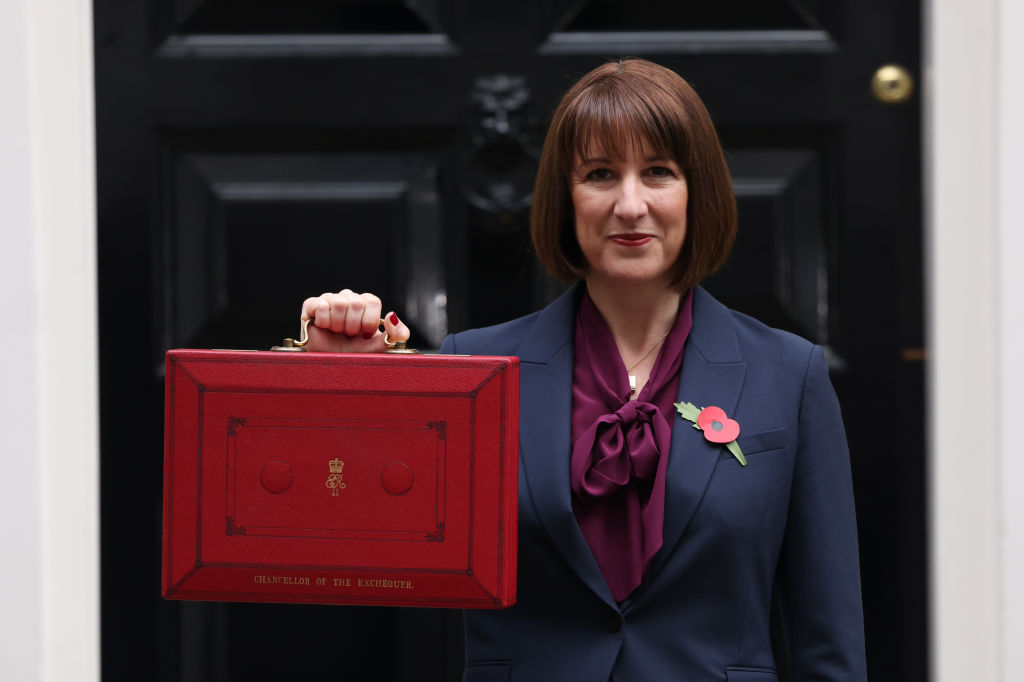“This Budget raises taxes by £40 billion,” Rachel Reeves told the House of Commons this afternoon. Even in the world of Government finances, where big numbers start to sound like small change down the back of the Chancellor’s sofa, that figure stands out. This Labour ministry’s first Budget was, first and foremost, a tax-raising endeavour — and a big one at that.
About £25 billion of extra tax is set to be raised through employers’ national insurance contributions, which will go up from 13.8% to 15% — compounded by a fall in the earnings threshold required to pay the tax, from £9,100 to £5,000. Labour will be hoping taxing employers, rather than taxing employees directly, will allow the party to weather the challenge that this is a stealth tax rise on the very “working people” the Budget was stated to protect.
Less ambiguously targeted was the £9 billion set to be raised by ending non-dom tax arrangements for the global elite, alongside another £2 billion from changing inheritance tax rules, and big hikes in capital gains tax rates. It would be hard to make the charge of these being tax rises on “working people” stick.
And that’s just the tax rises in this Budget. Last week, at the stroke of the Chancellor’s pen, Britain’s fiscal rules were updated to use a different technical definition of debt, opening up capacity for much more state spending: £100 billion more over the next five years, to be exact.
The message was clear: expect more tax and spend from this new government. So far, so Labour. Whether this Budget is the first step in Keir Starmer’s stated mission of “national renewal” will hinge on whether this latest round of tax and spend really does get economic growth back on track.
We’re a decade and a half into consecutive chancellors delivering sober assessments of the public finances. Growth since the financial crisis has been dire, and without growth the only way to keep the books balanced is by cutting back spending — or raising taxes.
It’s remarkable that the country’s best bet for economic growth may well be a Labour Party starved of funds for its Government spending ambitions. Rishi Sunak and the Tory Party that he leads until the end of this week can cry foul from the Opposition benches, but their dwindling voter base is overwhelmingly retired, and just not that interested in economic growth: their voters would rather an empty field than green infrastructure to enable the Britain of tomorrow. So much for the party of enterprise and personal ambition.
Labour, now the party of working-age people as well as of workers, has every incentive to prioritise growth. Getting growth started again would enrich its working voter base ready for the next election, and provide the funding for public services that is the raison d’être of centre-left parties.
Allocating £100 billion more spending to capital investment, Reeves hopes that supply-side bottlenecks in the public sector can be overcome by increasing Britain’s internationally low record of investment in its Government services. “The OBR is clear — this Budget will permanently increase the supply capacity of the economy, boosting long-term growth,” she said.
This is a necessary and positive first step. Even hawkish fiscal conservatives should be prepared to acknowledge that our current model of low-capital investment with high operational expenditure isn’t working. We are spending less to spend more. But Reeves shouldn’t get too ahead of herself — Britain’s growth forecasts remain utterly anaemic.
If the growth forecasts were any good, the Budget message would not have been one of sacrifice and pain for the greater good. Planning reform for growth remains on the to-do list, and there is still much work to be done. If Labour is going to turn Britain around, this Budget was just the beginning.











Join the discussion
Join like minded readers that support our journalism by becoming a paid subscriber
To join the discussion in the comments, become a paid subscriber.
Join like minded readers that support our journalism, read unlimited articles and enjoy other subscriber-only benefits.
Subscribe